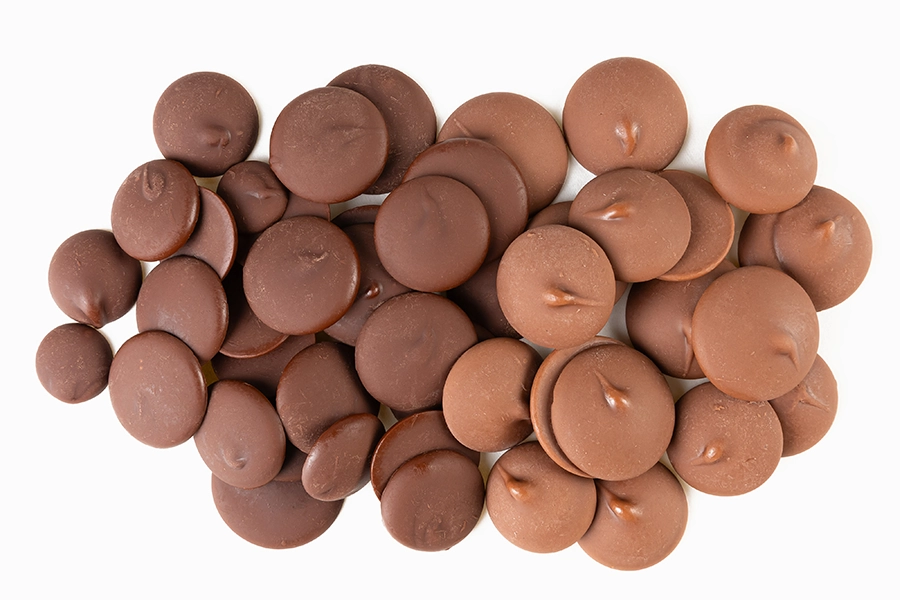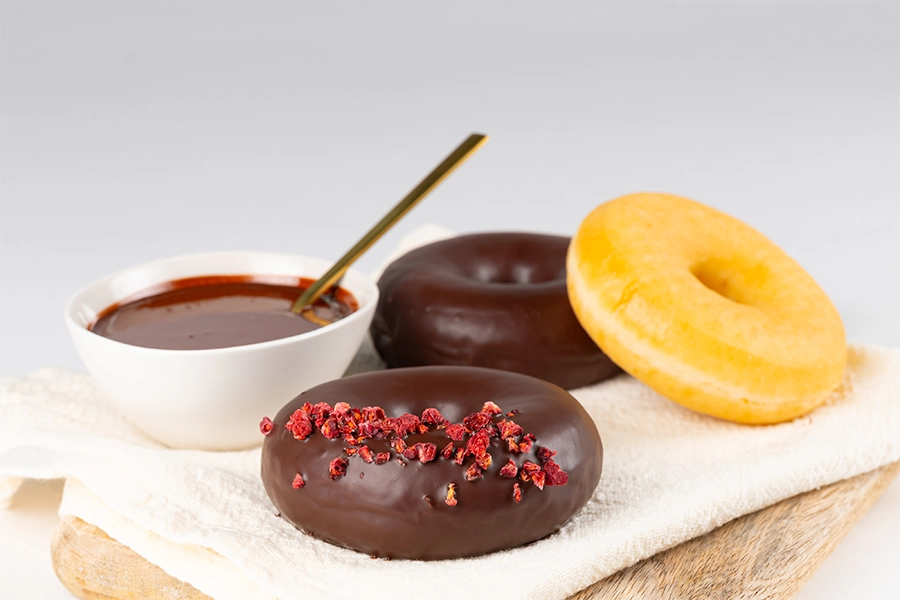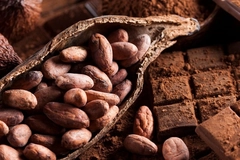
- Industry news
Industry news
- Category news
Category news
- Reports
- Key trends
- Multimedia
- Journal
- Events
- Suppliers
- Home
- Industry news
Industry news
- Category news
Category news
- Reports
- Key trends
- Multimedia
- Events
- Suppliers
Cargill webinar preview: NextCoa delivers more sustainable and affordable indulgence without cocoa
Key takeaways
- Cargill’s NextCoa targets chocolate-like indulgence with a stable raw material supply and lower emissions.
- The company cites significant cuts in carbon, land use, and water use, backed by independently verified LCAs.
- Sensory testing shows smooth, melty, roasty, chocolate-style profiles, with multiple recipes from intense to mild.

In response to tightened cocoa supplies and price volatility, Cargill is spotlighting NextCoa — a resource-reliable confectionery alternative designed for more sustainable indulgence. Made from gently roasted grape and sunflower seeds, the ingredient can be used in various traditionally cocoa-based applications.
Cargill experts will discuss how brands can manage cocoa costs, lower environmental impact, and still deliver consumer delight in an exclusive webinar with Food Ingredients First.
Follow this link to register for the free webinar, which will broadcast on Wednesday, November 5, at 10 AM CET.
Ahead of the webinar, we spoke with panelists Bengisu Corakci, product line manager and commercial leader; Steven Mandley, who specializes in Life Cycle Assessment (LCA); and Clémence Léotard, user and product experience designer and sensory scientist. Together, they’ll unpack how NextCoa is being built, validated, and brought to market.
Cocoa pressure, consumer pressure
The starting point, according to Corakci, is a tension the industry hasn’t solved yet. “Seventy-six percent of consumers want to buy more sustainable chocolate or cocoa-based products but are unsure how,” she says. “However, there’s a gap between intention and action. Price remains a major barrier.”
That affordability gap is widening. Cocoa has become more expensive and more volatile, which has made it harder for brands to position chocolate at an accessible price point. Cargill is pitching NextCoa as an alternative route: a confectionery platform with no cocoa at all.
NextCoa is made from revalorized grape and sunflower seeds — ingredients Cargill describes as familiar, plant-based, and positively perceived by consumers. The company says this approach helps stabilize costs, reduce exposure to cocoa price swings, and support consistent margin structures. Based on current market conditions, Cargill says the system delivers significant savings compared to chocolate.
Cargill also stresses scalability. NextCoa is designed to run on standard confectionery and chocolate lines and will be offered in both liquid and solid formats. The company is targeting applications such as biscuits, chocolate confectionery like countlines, cereals, and ice cream. “It behaves similarly to chocolate, which makes it easy to use in any application,” says Corakci.
There is also a manufacturing update that will be discussed in the webinar, which will make the product more accessible to European customers. Cargill will unveil NextCoa, a sustainable, cocoa alternative made from grape and sunflower seeds — cutting costs and emissions while keeping indulgence intact.
Cargill will unveil NextCoa, a sustainable, cocoa alternative made from grape and sunflower seeds — cutting costs and emissions while keeping indulgence intact.
Partnership with Voyage Foods
NextCoa is the result of a collaboration between Cargill and Voyage Foods, a food tech company focused on “future-proofing foods with uncertain futures.” Voyage Foods brings patented technology and a development model built around decoupling popular formats from traditional raw materials.
Cargill contributes sourcing scale, formulation expertise, and decades-long relationships with global food manufacturers.
“We proudly name our solution ‘NextCoa’ as it presents a portfolio adjacent to our core cocoa and chocolate business — but also because NextCoa conveys this idea of addressing the needs of the next generations,” says Corakci. “Together with Voyage Foods, we’re not just launching a product. We’re building a movement.”
Data-backed lower environmental impact
A key part of NextCoa’s value proposition is sustainability. Cargill says NextCoa can reduce carbon footprint by up to 67% compared to chocolate, cut land-related impacts by 90%, and consume 95% less water. The assessments benchmark NextCoa against average chocolate recipes and go beyond carbon, looking at 16 environmental indicators.
The figures are based on LCAs that are independently panel-reviewed for ISO compliance, says Mandley, who specializes in LCAs at Cargill. They also aligned with the Product Environmental Footprint methodology recommended by the European Commission.
“Sustainability has become a powerful driver of consumer choice, corporate strategy, and brand reputation. But with this growing demand comes a growing risk: environmental claims that are not credible or reliable,” says Mandley.
Mandley points to mounting regulatory scrutiny around “green” messaging in the EU. He notes that vague sustainability language now carries both reputational and legal risk. NextCoa harnesses a patented processing technology to transform abundant sunflower and grapeseeds into an alternative to chocolate.
NextCoa harnesses a patented processing technology to transform abundant sunflower and grapeseeds into an alternative to chocolate.
“We want our customers to have complete peace of mind when making sustainability-related claims — and that starts with credible, science-backed data,” says Mandley.
He adds that this approach isn’t just about storytelling on pack. Robust LCA data can help customers reduce or avoid carbon offset fees, strengthen green procurement strategies, and report Scope 3 emissions. Cargill says it is developing a tool to help brands calculate Scope 3 impact for specific recipes using NextCoa.
“No room for failure” on taste
Cost and sustainability only get a brand so far if the eating experience disappoints. “Sensory is the number one reason to repurchase products,” says Léotard. “Around 80% of consumers buy again because of sensory appeal — smell, flavor, texture. So there is no room for failure here.”
Léotard will outline the role of Cargill’s proprietary Cargill Heartbeat program, which the company describes as a sensory intelligence platform. The process maps how consumers experience indulgent products, compares new concepts with market benchmarks, and predicts which prototypes will resonate with different consumer profiles before a launch decision is made.
When Cargill’s expert panel evaluated NextCoa, they identified a smooth, melty texture and notes of roasted, cocoa, sweet, and unroasted nuts — despite the absence of cocoa. Those results were then pressure-tested with consumer research, and recipes were iterated until they crossed what Cargill calls the “threshold of delight.”
Cargill will use the webinar to introduce an expanded NextCoa range designed to meet different expectations across indulgent formats, ranging from “intense” to a “mild” vegan alternative for consumers seeking creamy sweetness without dairy.

















